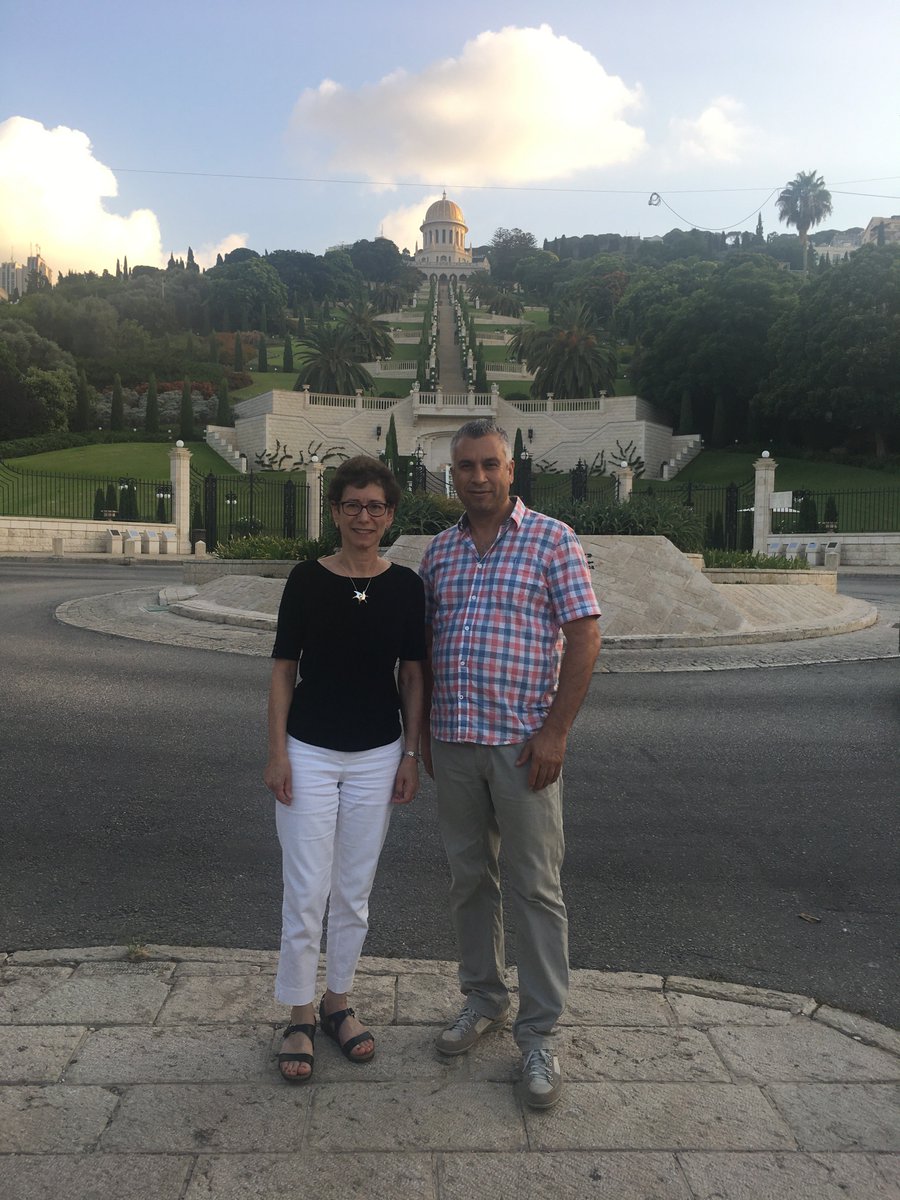
Partnerships Between Arab-Israeli and U.S. Scientists – Ashraf Brik and Cynthia Wolberger
Prof. Ashraf Brik and Prof. Cynthia Wolberger team up to examine the “molecules of life”

Proteins are often referred to as the “molecules of life,” since they carry out most cellular functions in a highly controlled manner that healthy bodies depend upon. Yet, changes in the chemical composition of proteins can lead to serious illnesses such as cancer.
As part of a BSF-supported project, Prof. Ashraf Brik of Technion-Israel Institute of Technology, and Prof. Cynthia Wolberger of the Johns Hopkins University School of Medicine are leading their respective teams in a joint effort focusing on a small protein called ubiquitin.
The project involves a modification process called ubiquitination, or the addition of the small ubiquitin protein to another protein. In several cases, the exact effect of ubiquitination is unknown. Great efforts are being invested to decipher its role on a protein function. Nevertheless, these efforts are often challenged by the unavailability of biological materials needed to conduct the desired studies. Brik and Wolberger hope to change this.
“Our aim is to develop highly innovative non-enzymatic approaches to prepare bioconjugates of ubiquitin and Small Ubiquitin-like Modifier (or SUMO) proteins,” Brik said. “SUMO proteins are similar to ubiquitin and are considered members of the ubiquitin-like protein family.”
Bioconjugation occurs when two molecules, one of which is a biomolecule, are coupled together. In this case, ubiquitin proteins are the molecules and SUMO proteins are the biomolecules.
This will enable the team to shed light on cellular functions of these conjugates, in particular, in DNA damage, which is of great importance in understanding cancer development.
This is Brik’s second BSF-funded project, and Wolberger’s first. In 2010, Brik was awarded a BSF grant for a project on genetically encoded ubiquitination with Prof. Peter G. Schultz of the Scripps Research Institute. Last year, Brik was named by Israel 21c as one of 16 Arabs from Israel making a difference on the world stage. The publication singled him out for his “groundbreaking methods to synthesize homogenous proteins for a variety of structural and functional studies.”
“I am very appreciative of the opportunities that BSF has given me,” Brik said. “BSF grants are well known to all Israeli scientists and they have helped me establish excellent relations with American scientists.”
Brik and Wolberger’s shared interest in ubiquitination led to their decision to work together.
“Ashraf is a chemist who can devise all sorts of ingenious ways to make biological molecules in a test tube rather than in a cell,” Wolberger said. “I marvel at what he does but could never do anything like what he does. I take advantage of all the different things he can do to drive my research program in studying the structures and biochemical behavior of ubiquitinated proteins and the enzymes that act on them.”
The partnership has proven fruitful in other ways as well. Brik and Wolberger have collaborated on six papers published in prestigious science publications, and thanks to a BSF Rahamimoff Travel Grant, one of Brik’s students, Muhammad Jbara, had an opportunity to work with Wolberger and her team at her lab in Baltimore. Since then, Jbara has received a Wolf Foundation prize as well as a Fullbright Scholarship, which will support him as a postdoctoral fellow at MIT.
“We are both grateful to BSF, not only for the grant, but also for the opportunity to encourage talented students like Muhammed,” Wolberger said.
